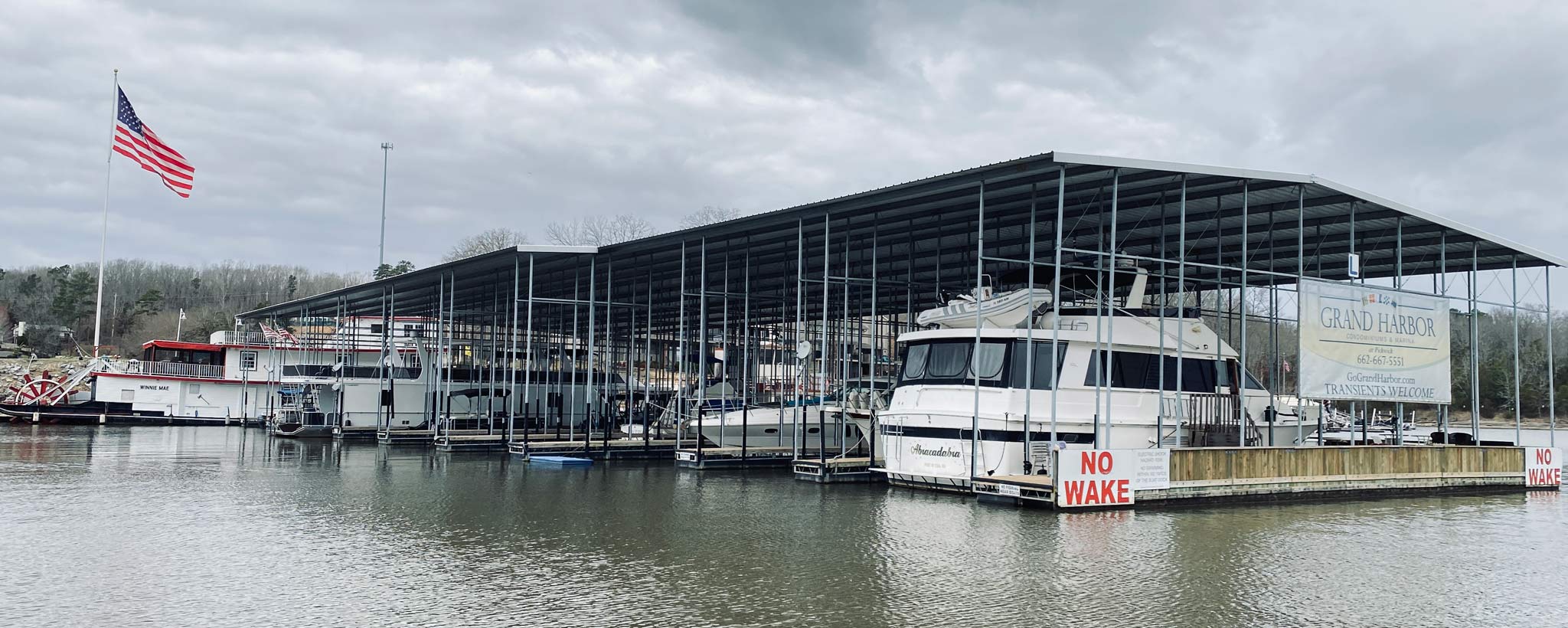
Clean Marinas Are Committed to the Environment
On a sunny, summer weekend, a marina can be a happening place, but most Tennessee Valley lake lovers would be surprised by the amount of work that goes into these floating businesses. TVA Natural Resources understands and is committed to promoting environmentally responsible owners who are using best management practices at their marinas and ensuring that best boating practices are being used by their customers.
The Clean Marina program is made up of seven components:
1. Sewage Management
2. Fuel Management
3. Solid Waste and Petroleum Recycling/Disposal
4. Vessel Operation, Maintenance, and Repair
5. Marina Siting, Design and Erosion Control
7. Public Education
While each section is useful for a marina to help protect the resource that provides its livelihood, Sewage and Fuel Management are ranked number one and two for a reason. They are both vitally important, and ignoring either of them can negatively impact the river or tributary in a short amount of time.
Sewage Management
Few people stop to think how sewage is managed by businesses on the river. Boats consistently come in after a day or longer on the water. Has their sewage been treated and discharged into the river or will they be disposing of it at the marina? Are the appropriate chemicals being used? How is it pumped, and what happens to it next?
“These are some of the weighty questions we ask marina operators who have requested a visit from TVA to make a preliminary assessment of their marina using the Clean Marina Checklist,” says RaSharon King, project lead for the Clean Marina program.
Some of the Clean Marina criteria are required by federal or state law, according to King. But some of TVA’s required actions go beyond normal operations to better protect the river or the tributary that is home to the marina.
These include items such as keeping inventory records of all sewage pumpout users, dates, and volumes pumped. “We actually ask to see those records, which are useful to discover if a boater could possibly be discharging sewage illegally,” King explains. The Clean Marina program also requires marinas to have a pumpout system that meets the needs of their marina users for free or at a reasonable cost, or have an agreement with a mobile pumping service or another marina for servicing boats in their marina.
There are 12 actions under Sewage Management, which means a marina must achieve nine of the items identified in that area for a minimum score of 75%.
Fuel Management
Anyone who has seen a garden hose that has split and is spewing water can understand why fuel management issues are vitally important. From the handling of fuel spills to automatic shutoffs on fuel lines and at hose nozzles, the goal is to keep every drop of fuel out of the water.
“Many of the items in this section are required by state or federal government, but TVA has additional question, such as “Do you have easy-to-read signs on the fuel dock that explain proper fueling, spill prevention, and spill reporting procedures? We also inquire if they have staff pump the fuel or supervise during regular operating hours,” says King. “There are so many little things that can make a big difference, like having the watchful eye of a staff person on the dock to oversee fueling.”
Many marinas use this checklist to make certain they are in compliance with the Clean Marina requirements before they call TVA. “That’s one of the interesting aspects about the program, it’s voluntary, so we only work with those marinas that want to be involved, and we offer incentives for their participation, ” says King.
If TVA identifies areas where improvements are needed, King works with the marina to develop a plan of action for obtaining certification in the future. “They want to become a Tennessee Valley Clean Marina, because this designation is important. It means that the marina owners and their employees understand and are protecting one of the valley’s most valuable resources its water,” says King.
Read more about Tennessee Valley Clean Marina certification and look for more in upcoming issues of River Neighbors.

It’s always a good time for fun on the Tennessee Valley’s lands and waters. Not sure where to start? We have you covered! Check out some of the best recreational activities on our reservoirs. While you’re enjoying the lakes, trails, picnic areas and campgrounds, share your own stories and photos on Instagram using #TVAfun.
River Neighbors Newsletter
Get the all the latest news and inside information about recreation on TVA public lands and lakes.